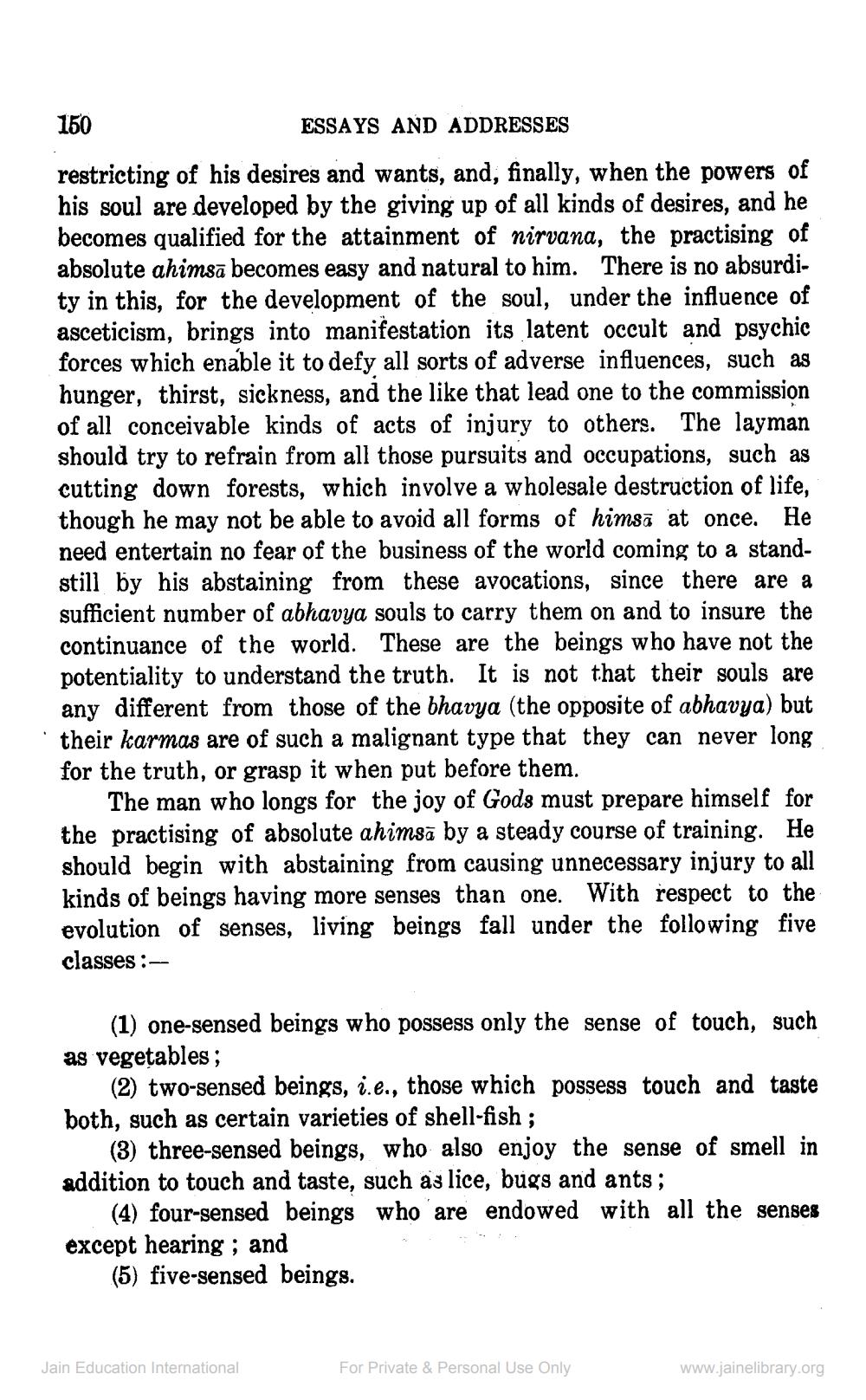________________
150
ESSAYS AND ADDRESSES restricting of his desires and wants, and, finally, when the powers of his soul are developed by the giving up of all kinds of desires, and he becomes qualified for the attainment of nirvana, the practising of absolute ahimsa becomes easy and natural to him. There is no absurdity in this, for the development of the soul, under the influence of asceticism, brings into manifestation its latent occult and psychic forces which enable it to defy all sorts of adverse influences, such as hunger, thirst, sickness, and the like that lead one to the commission of all conceivable kinds of acts of injury to others. The layman should try to refrain from all those pursuits and occupations, such as cutting down forests, which involve a wholesale destruction of life, though he may not be able to avoid all forms of himsa at once. He need entertain no fear of the business of the world coming to a standstill by his abstaining from these avocations, since there are a sufficient number of abhavya souls to carry them on and to insure the continuance of the world. These are the beings who have not the potentiality to understand the truth. It is not that their souls are any different from those of the bhavya (the opposite of abhavya) but their karmas are of such a malignant type that they can never long for the truth, or grasp it when put before them.
The man who longs for the joy of Gods must prepare himself for the practising of absolute ahimsā by a steady course of training. He should begin with abstaining from causing unnecessary injury to all kinds of beings having more senses than one. With respect to the evolution of senses, living beings fall under the following five classes :
(1) one-sensed beings who possess only the sense of touch, such as vegetables;
(2) two-sensed beings, i.e., those which possess touch and taste both, such as certain varieties of shell-fish;
(3) three-sensed beings, who also enjoy the sense of smell in addition to touch and taste, such as lice, bugs and ants ;
(4) four-sensed beings who are endowed with all the senses except hearing ; and
(5) five-sensed beings.
Jain Education International
For Private & Personal Use Only
www.jainelibrary.org




